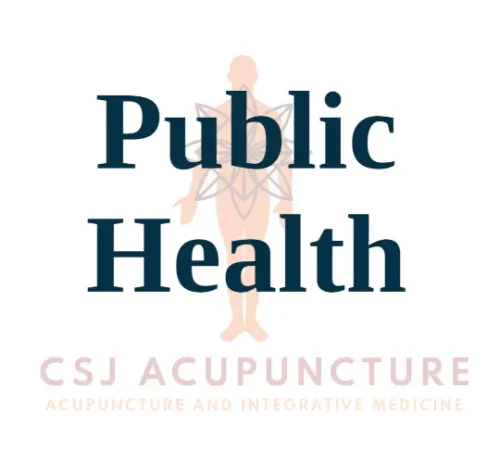This post may contain affiliate links and ads in which we may earn a small percentage of purchases.
The Deputy Secretary of Health and Human Services (HHS) is one of the most critical roles in the U.S. federal government when it comes to public health, policy implementation, and the effective running of healthcare initiatives across the nation. As the second-highest-ranking official in the Department of Health and Human Services, the Deputy Secretary acts as the chief operating officer for HHS, ensuring the department’s vast range of programs and policies function smoothly. From overseeing complex healthcare systems to spearheading health reform initiatives, the Deputy Secretary plays a pivotal role in safeguarding the health and well-being of the American people.
The Role of the United States Deputy Secretary of Health and Human Services
According to the US Department of Health and Human Services website, “Departmental leaders” are amongst the top qualified public servants in the federal government. They are dedicated to “ensuring the guidance and management necessary to support the health and well-being of the nation.”
Overview of the Department
The Department of Health and Human Services is one of the largest federal agencies, tasked with improving the health and providing essential human services to all Americans. With a broad mandate that covers areas such as public health, social services, disease prevention, and healthcare insurance, HHS oversees a diverse set of programs, including Medicare, Medicaid, and the Centers for Disease Control and Prevention (CDC). The Deputy Secretary is a key leader in ensuring these initiatives are effectively managed and implemented to meet the needs of the American population.
Responsibilities of the Deputy Secretary
The Deputy Secretary functions as the chief operating officer of HHS, directly under the Secretary of Health and Human Services. This role involves overseeing the day-to-day management of the department, which includes supervising the budget, managing personnel, and guiding the implementation of critical health policies. This leadership role also involves setting priorities across the agency, ensuring that policies align with the overarching goals of HHS.
A stainless-steel acupuncture pen and gua sha set for massage, reflexology, and tension relief.
 View Product
View Product
Given the size and scope of HHS, the Deputy Secretary needs to maintain a keen focus on organizational efficiency. This involves streamlining the department’s operations, ensuring compliance with federal guidelines, and resolving complex administrative and operational challenges. A large part of the Deputy Secretary’s work involves coordination between different agencies under the HHS umbrella, such as the Food and Drug Administration (FDA), the National Institutes of Health (NIH), and the Administration for Children and Families (ACF).
Policy Implementation and Coordination
Another core function of the Deputy Secretary is ensuring the successful implementation of policies developed by the department. This means not only assisting in crafting new regulations and reforms but also overseeing how these policies are put into action at the federal, state, and local levels. The Deputy Secretary works closely with state and local health agencies to ensure that federal policies meet the unique needs of different communities across the country.
One of the most challenging aspects of the role is dealing with public health emergencies. The Deputy Secretary often plays a central role in managing HHS’s response to crises like infectious disease outbreaks, natural disasters, or other public health emergencies. This includes working with other federal departments, such as Homeland Security and the Department of Defense, to ensure a coordinated and effective response.
Acting as a Key Liaison
The Deputy Secretary also serves as a key liaison between HHS and other parts of the federal government, including Congress and the White House. The Deputy Secretary represents HHS in various interagency working groups, providing guidance on health policy, regulatory issues, and budget considerations. This aspect of the job involves advocating for HHS programs and ensuring that the department receives the necessary funding and support from Congress to carry out its mission effectively.
A Supportive Role for the Secretary
While the Secretary of Health and Human Services serves as the public face of the department, the Deputy Secretary’s role is more operational and inward-facing. They ensure that HHS programs are implemented in a timely, cost-effective manner and that the department’s workforce has the resources and direction needed to be successful. The Deputy Secretary also helps the Secretary develop strategic initiatives that shape the long-term vision for healthcare in America.
Key Challenges of The United States Deputy Secretary of Health and Human Services
The Deputy Secretary faces numerous challenges, including managing a diverse portfolio of programs with competing priorities, working under tight budgetary constraints, and navigating the complexities of the American healthcare system. The position requires a deep understanding of public health policy, federal operations, and the intricacies of healthcare economics. Additionally, effective leadership is essential, as the Deputy Secretary is responsible for ensuring that the department’s 80,000-plus employees are motivated, efficient, and aligned with HHS’s overall mission.
The Deputy Secretary must also be adept at handling crises, as the COVID-19 pandemic demonstrated. Ensuring the smooth coordination of vaccine distribution, managing public communication, and working with states and private healthcare organizations to overcome challenges are all within the Deputy Secretary’s purview.
In summary, the Deputy Secretary of Health and Human Services is a crucial figure in the American healthcare landscape. By overseeing operations, implementing policies, and managing health emergencies, the Deputy Secretary helps to ensure that the Department of Health and Human Services fulfills its mission to protect and enhance the health of the American people. It’s a role that requires a blend of administrative acumen, public health expertise, and strategic vision—all crucial qualities for maintaining and improving a complex healthcare system that impacts millions of lives.
Medical Disclaimer: This article is for informational and educational purposes only and is not a substitute for professional medical advice, diagnosis, or treatment. Always consult a qualified healthcare provider with any questions about a medical condition or treatment.





